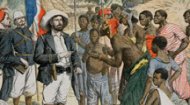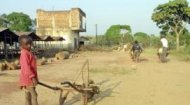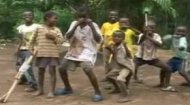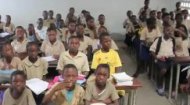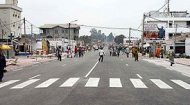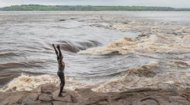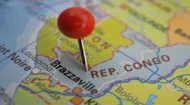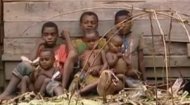|
Prior to European colonisation, the region was home to several powerful kingdoms, most notably the Kongo Kingdom. The late 19th century saw the arrival of French colonialists, who established French Congo, later becoming part of French Equatorial Africa. Independence was achieved in 1960, ushering in decades marked by periods of single-party rule, political instability, and, unfortunately, several civil conflicts in the late 20th century. These internal struggles severely impacted the nation's development and left deep scars. However, since the early 2000s, the country has largely experienced a period of relative calm, striving to consolidate peace and rebuild under a multi-party system, with a persistent focus on achieving lasting stability Today the Republic of Congo (Congo-Brazzaville) has shown some signs of improvement, particularly in its local currency credit rating, but it is not generally considered a stable country due to ongoing political tensions, economic vulnerabilities, and security concerns.
Nonetheless, the relatively peaceful transfer of power in recent elections, albeit disputed, signals a desire to maintain a semblance of order. Regional diplomacy and cooperation, particularly within the Economic Community of Central African States (ECCAS), are vital components of its political strategy, aiming to foster broader regional stability and economic integration. The government's focus has been on post-conflict reconstruction, infrastructure development, and attracting foreign investment, all underpinned by the imperative to avoid a return to the violent past. The quest for political stability is not merely an abstract goal, but a foundational requirement for any meaningful socio-economic progress. The economic profile of Congo Brazzaville is heavily reliant on its oil sector, which accounts for the vast majority of its exports and a significant portion of its GDP and government revenue. This dependence makes the economy highly vulnerable to fluctuations in global oil prices. When prices are high, the country experiences periods of growth and increased public spending; when they fall, the impact can be severe, leading to budget deficits, reduced public services, and economic contraction. Recognising the perils of this over-reliance, successive governments have articulated strategies for economic diversification. Efforts are underway to revitalise agriculture, promote sustainable forestry, develop the nascent mining sector (potash, iron ore), and encourage growth in services. Infrastructure projects, including roads, ports, and energy facilities, are seen as being critical for facilitating this diversification and improving connectivity. Despite these efforts, poverty remains widespread, and unemployment, particularly among the youth, is a significant challenge. Bridging the gap between resource wealth and broad-based prosperity is the central dilemma facing the country. Sustained economic stability is intrinsically linked to prudent management of oil revenues and successful diversification away from this single commodity. The social profile of the Republic of Congo reflects a diverse nation, home to numerous ethnic groups, including the Kongo, Teke, M'Bochi, and Sangha, each contributing distinct customs and languages to the national tapestry. French is the official language, a legacy of colonial rule, while Kituba and Lingala serve as widely spoken lingua francas. The population is predominantly young, with a significant proportion residing in urban centres like Brazzaville and Pointe-Noire, the economic hub. |
Congo Profile |
Congo Profile |
Congo Profile | Congo Profile |
About street children in Congo Brazzaville in facts, figures atogether with details of support projects.
More >
Brazzaville and Kinshasa, the two closest capital cities in the world are connected by the Congo ferry.
More >
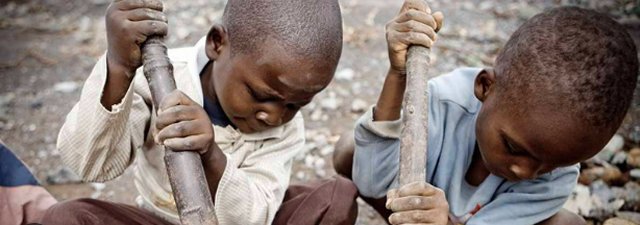
Social development indicators present a mixed picture. While progress has been made in areas like school enrollment and access to basic healthcare since the civil conflicts, significant challenges persist. Healthcare infrastructure is still developing, and the country grapples with endemic diseases such as malaria, HIV/AIDS, and tuberculosis. Access to clean water and sanitation remains a hurdle for many, particularly in rural areas. Educational quality varies, and preparing the burgeoning youth population for the demands of a modern economy is a paramount concern. Despite these difficulties, the social fabric is resilient. Community bonds are strong, and mutual support systems are vital in navigating daily challenges. The aspiration for better opportunities, improved living standards, and widespread social stability is palpable among the populace. The cultural landscape of the Republic of Congo is remarkably rich and diverse, reflecting the traditions of its myriad ethnic groups. Music, dance, and storytelling are integral to Congolese identity. The country has contributed significantly to the pan-African music scene, particularly through genres like Soukous and Ndomele, which are characterised by their rhythmic complexity and vibrant performances. Traditional dances, often accompanied by drums and other instruments, play a crucial role in ceremonies, celebrations, and community gatherings. Art forms, including elaborate masks, sculptures, and textiles, embody spiritual beliefs and historical narratives. Congolese literature, though perhaps less globally recognised than its music, also offers insightful perspectives on the nation's experience. Religion, predominantly Christianity mixed with traditional beliefs, plays a significant role in daily life, shaping social norms and providing community platforms. This rich cultural heritage serves as a powerful source of national pride and cohesion, fostering a sense of shared identity that transcends ethnic lines and contributes to a broader sense of national stability. For the ordinary citizen in the Republic of Congo, daily life is a blend of persistence, resourcefulness, and optimism, shaped by the broader political, social, and economic realities. In urban centres like Brazzaville, the pace is bustling. Markets overflow with goods, informal businesses thrive, and the sounds of music permeate the air. However, access to reliable electricity, clean water, and consistent employment can be erratic. Public transportation is often crowded, and traffic congestion is a growing issue. Education is highly valued, and parents often make significant sacrifices to ensure their children attend school. In rural areas, life is more agrarian, centred around subsistence farming, fishing, and communal activities. Access to essential services like healthcare and education is more limited, and infrastructure development is often sparse. Despite the challenges, a strong sense of community and family ties provides a vital support network. The pervasive desire for peace and stability is not an abstract concept but a tangible aspiration that directly impacts individual security, economic opportunities, and the ability to plan for the future. The relative calm of the past two decades has allowed for a return to normalcy and a gradual improvement in general living conditions, though much work remains. Congo Brazzaville is in 147th place out of 193 countries and territories in 2025 when ranked in terms of life expectancy, literacy, access to knowledge and the living standards with a life expectancy of 65.77 years (2025). The poverty rate in the Republic of Congo (Congo-Brazzaville) is high, with 46.5% of the population living below the international poverty line of $2.15 per day and up from 33% in 2014. Find out more about the Republic of Congo in our Congo Brazzaville profile pages above.
|
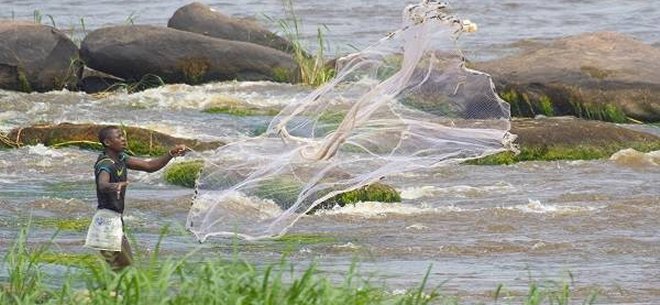
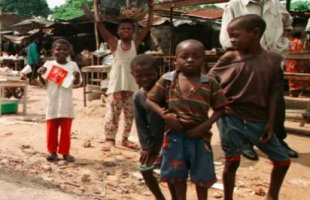 The Republic of Congo operates as a presidential republic, with a strong centralised government. The journey since the tumultuous 1990s has been characterised by efforts to strengthen democratic institutions, though challenges persist. Governance, transparency, and the rule of law remain critical areas for improvement. The political system, while nominally multi-party, often sees power concentrated, raising concerns about democratic space and opposition participation.
The Republic of Congo operates as a presidential republic, with a strong centralised government. The journey since the tumultuous 1990s has been characterised by efforts to strengthen democratic institutions, though challenges persist. Governance, transparency, and the rule of law remain critical areas for improvement. The political system, while nominally multi-party, often sees power concentrated, raising concerns about democratic space and opposition participation.